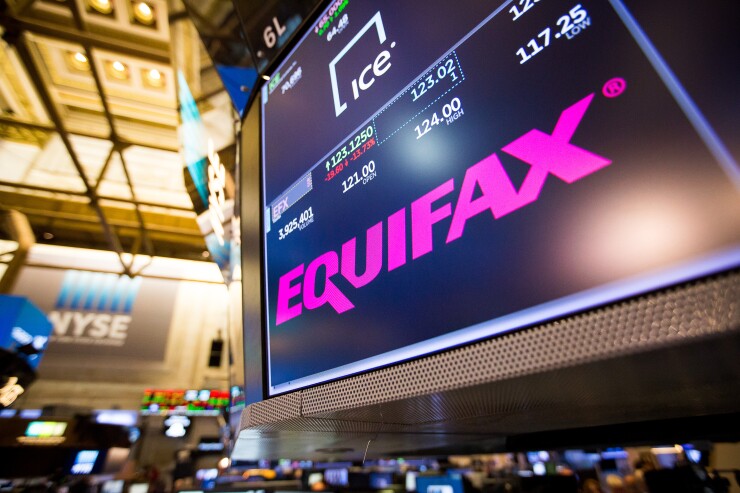Want unlimited access to top ideas and insights?
Welcome to the PaymentsSource Morning Briefing, delivered daily. The information you need to start your day, including top headlines from PaymentsSource and around the Web:
The other Equifax breach: While the fallout from the

China tightens the screws on bitcoin:
Australia's still rough for Apple Pay: The Commonwealth Bank of Australia will add Garmin smartwatch payments when the new devices are released in October, though CBA did not mention Apple Pay or Apple Watch support, reports
Web group wants easier payments: The World Wide Web Consortium is pushing for new technology to streamline online checkout and upgrade security for e-commerce merchants. All of the major browsers have agreed to adopt the payments request API, which asks merchants, developers and other payment industry stakeholders to test new payment technology and report back to the WWC, which has promised to expand its testing function. The WWC is hoping reduce the number of different workflows for online payments, and remove manual data entry as much as possible for purchases. The current state of the market encourages cart abandonment because of the differences in user experience, and it also requires developers to build checkout pages that can accommodate different payment methods.
From the Web
Fortune | Mon Sep 18, 2017 - Mexico would regulate its fast-growing financial technology sector, including firms that use crypto-currencies like bitcoin, to protect consumers and spur competition, under a proposed bill seen by Reuters. The proposed legislation, which Mexican President Enrique Pena Nieto said this month would be unveiled in the Senate before Sept. 20, seeks to ensure financial stability and defend against money laundering and financing of extremists. The new measures will allow Mexico to join a small list of countries, including the United States and Britain, that have sought to regulate fintech firms. Financial services firms envisage massive potential growth in Latin America's No. 2 economy by reaching the more than 50 percent of Mexico's roughly 120 million citizens without bank accounts.
TechCrunch | Mon Sep 18, 2017 - Following on from Alibaba’s $1 billion deal with Lazada and a $1.1 billion round in Tokopedia led by Alibaba, rival Chinese e-commerce firm JD.com has announced a $500 million investment that will create e-commerce and fintech businesses in Thailand. Southeast Asia, a region of 600 million consumers, is forecast to see its internet economy grow to $200 billion by 2025 thanks to rising internet access. That potential has attracted investment dollars from Chinese giants lie Tencent and Alibaba, and now JD.com is upping its own efforts. The investment comes from JD.com, Thai retail group Central Group — which owns former Rocket Internet fashion commerce portals Zalora Thailand and Zalora Vietnam — and investment firm Provident Capital. It will see two joint ventures created which lean on JD.com’s experience, expertise and technology to complement Central Group business, which has assets of close to $10 billion and some 70,000 employees across its operations.
Huffington Post | Mon Sep 18, 2017 - You’ve probably heard about cryptocurrency, or its most popular currency, bitcoin. But you may not have realized there aren’t any actual coins, but rather lines of code. And there are very few merchants that are setup to process payments using bitcoin or other types of cryptocurrency. And when Sam Sharma first got into trading cryptocurrencies three years ago, he was immediately struck with the idea of facilitating a way for average people to use this new currency in their daily lives. And to accomplish this, he founded Centra. Centra is a debit card that will be tied to digital currency wallets and will allow their cardholders to spend their cryptocurrency as if it were any other type of government backed currency.
More from PaymentsSource
In the past decade or so, payment processors have turned themselves into more diverse technology providers rather than allow themselves to become the "plumbing" of payments. But to do so meant forging new partnerships with companies that might have previously been seen as competitors.
The hardest problem in B-to-B payments isn’t moving the money. It’s simple enough to get payment to suppliers electronically through a credit card or ACH network. What’s hard is vendor enablement—knowing which suppliers accept what payment type, and keeping track of it all.
Apple has provided a more detailed roadmap for upcoming operating system updates.
In another reminder that the introduction of Apple's iPhone X does not represent the first device to deploy facial recognition authorization, HSBC is making it possible for customers in China to make payments with a "selfie."





